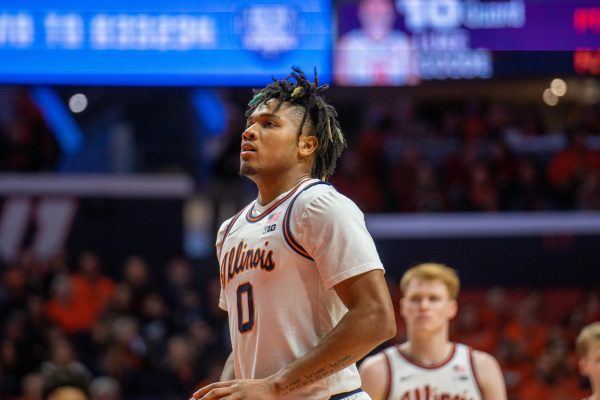Don’t kick Coca-Cola off campus; keep it
April 30, 2007
This summer, the University’s beverage contract with Coca-Cola will expire. A small group of students on campus is lobbying for the University to disallow Coca-Cola to bid for the new contract, alleging labor violations in Columbia and environmental concerns in India. We cannot allow a few students with unfounded claims speak for all students and miss an opportunity for the University to benefit from a competitive bidding process.
The previous contract with Coca-Cola brought $10 million to the University. In addition to contractual monetary obligations, Coke has been a sponsor of Illini athletics, a corporate scholarship contributor and a friend to local schools. Disallowing Coca-Cola to be included in competitive bidding for future contracts will mean the loss of money and other prerequisites to the University. Pepsi will simply bid the minimum amount necessary to scare off other beverage providers with fewer resources and be granted the contract.
Both the Colombian and U.S. legal systems have investigated the allegations cited by the anti-Coke group on campus. Claims have been dismissed in both Colombian courts and in the Federal Court of Miami. Coke critics assert that the murders of nine Colombian workers employed at Coca-Cola’s independently contracted bottlers is an indication that Coke is hostile towards organized labor. However, activists fail to mention that according to BusinessWeek, since 1980, 2,500 union workers have been killed by paramilitary organizations in Columbia. With 31 percent of Coca-Cola’s Colombian workforce unionized versus less than 5 percent of all other Colombian workers, it is apparent that anti-union, paramilitary groups would target Coke. It is ludicrous to believe that Coca-Cola would support such activity when unions are already prevalent in Coca-Cola’s organization. The International Labor Organization (ILO), an arm of the United Nations, is also conducting a third party investigation of these incidents. Who better to conduct this investigation than the U.N.?
The other allegation made by anti-Coke activists on campus is ground water depletion in Coca-Cola’s Indian facilities. Once again, Coca-Cola has listened to the concerns. In an April 2006 letter to the University of Michigan, Donald Knauss, President of Coca-Cola North America stated, “We are in active dialogue with TERI, a highly respected Delhi-based NGO with deep experience on sustainability issues to develop a transparent and impartial independent third party assessment of water resource management practices at Coca-Cola company facilities in India.” Our logical alternative to Coke, Pepsi-Cola, is also receiving criticism over its environmental practices in India.
The small group of students seen protesting Coke on campus is a convenient tool for pro-union activists. A Jan. 2006 article in BusinessWeek outlines the plan of labor activist Ray Rogers. Rogers is using small, vocal groups of college students to put pressure on Coca-Cola to pay reparations to families and line his pockets with fees from his union consulting firm, Corporate Campaign, Inc. Rogers and others target big businesses with their own big union mentality. Regardless of Coca-Cola’s ability to disprove claims or its willingness to work to improve existing practices, Rogers will not stop until his pockets are filled with Teamsters’ consulting fees.
Get The Daily Illini in your inbox!
On this campus, we cannot make the same mistake that the University of Michigan did. Michigan initially halted purchasing of Coca-Cola products after a small group of vocal students began protesting. The university replaced Coca-Cola with Faygo beverage products. I’ve often thought I could really use a Faygo on a hot August day on the Quad. Just four months later, after further communication with Coca-Cola, the University of Michigan rescinded their boycott and began purchasing Coke products again.
On our campus, we cannot let a small group of students, controlled by outside union activists, dictate who the University does business with. Our own student senate has spoken loudly on the subject with the passage of a resolution allowing Coke in the bidding process. Over 800 students spoke loudly when they signed petitions with the same demands. What kind of campus environment would exist if the administration followed every small student group’s suggestions? Allowing Coca-Cola and all interested parties to bid for beverage rights is in the best interest of the University.






